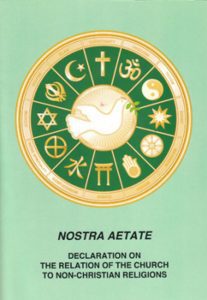Pope Francis has emerged as a pivotal figure in modern theology, particularly known for his emphasis on dialogue as a means to bridge divides and foster unity. His approach is characterized by an open-hearted willingness to engage with individuals from all walks of life, transcending traditional barriers of creed, culture, and nationality. This theology of dialogue invites us to rethink how faith can serve as a unifying force rather than a source of division.
Central to Pope Francis' vision is the belief that authentic dialogue requires humility, respect, and a genuine desire to understand others. By prioritizing encounters over arguments, he challenges both religious leaders and laypeople to build relationships rooted in mutual understanding. In this way, his teachings inspire a renewed commitment to fostering peace and harmony across diverse communities. Below, we explore various dimensions of Pope Francis' theology of dialogue and its implications for our interconnected world.
The Power of Encounter: Building Bridges Through Faith
In today's increasingly polarized world, Pope Francis emphasizes the transformative power of encounter. He believes that meaningful conversations between people of different faiths or backgrounds can lead to greater understanding and cooperation. Elizabeth Dias, a Time magazine correspondent who covers faith and politics, highlights how the pope's approach has shifted public discourse around religion. Her insights reveal that faith is not merely a personal belief system but also a powerful tool for social change.
This perspective aligns with Pope Francis' call for inter-religious dialogue as a path to peace. By engaging directly with those whose beliefs differ from ours, we can break down stereotypes and foster genuine connections. Such encounters challenge preconceived notions and encourage us to see one another as fellow human beings sharing common values and aspirations.
Moreover, the pope's emphasis on encounter extends beyond religious boundaries. It calls upon individuals to embrace diversity in all its forms and work together toward creating a more inclusive society. This holistic approach underscores the importance of dialogue not only within faith communities but also across broader societal contexts.
A New Vision for Interfaith Relations: Learning from Each Other
Pope Francis advocates for a deeper approach to interreligious dialogue, encouraging Catholics and members of other faiths to learn from one another. During his visit to Indonesia—the most populous Muslim nation on Earth—he addressed worshippers at a mosque, inviting them into conversation about shared values. His words emphasize the need for respectful engagement while acknowledging differences.
Such initiatives reflect the complexity of historical interactions between religions. For instance, Nasaruddin Umar, grand imam of Jakarta's Istiqlal Mosque, notes that sociocultural landscapes throughout history have always been multifaceted, with religion playing just one role among many. Understanding this context helps contemporary practitioners navigate interfaith relations with greater sensitivity and awareness.
Furthermore, Pope Francis' outreach serves as a model for constructive dialogue. By exemplifying humility and openness, he demonstrates how religious leaders can contribute positively to global efforts aimed at promoting peace and reconciliation. This approach resonates deeply with those seeking common ground amidst differing perspectives.
Reason and Faith: A Harmonious Partnership
Gabriel Reynolds, an expert in Islamic studies, observes that Pope Francis actively engages with Muslims and other non-Christian groups. However, Catholic theology rests firmly on the principle that faith must coexist harmoniously with reason. This balance ensures that spiritual convictions remain grounded in rational thought processes rather than dogmatic assertions.
For example, the apostolic exhortation Evangelii Gaudium explores the relationship between faith, reason, and science. Published in 2013, it encourages believers to integrate intellectual rigor into their practice of religion. By doing so, they can address complex issues such as climate change, economic inequality, and technological advancements through informed theological reflection.
This integration of faith and reason enriches interfaith dialogue by fostering mutual respect for diverse epistemologies. When participants bring well-reasoned arguments alongside heartfelt convictions to the table, discussions become more productive and insightful. Ultimately, this approach strengthens the foundation for lasting partnerships across religious traditions.
From Persecution to Inclusion: Healing Wounds Through Dialogue
Brett Scharffs, director of the International Center for Law and Religion Studies, discusses the critical role of faith-sensitive humanitarian interventions. Organizations like the AMAR Foundation focus on aiding communities affected by religious persecution, helping them transition from victimhood to empowerment. Their work exemplifies Pope Francis' vision of using dialogue to heal deep-seated wounds caused by intolerance and discrimination.
Mental health support plays a vital part in these efforts, addressing trauma inflicted by violence and marginalization. Music and cultural exchange programs further enhance healing processes by providing spaces where diverse voices can be heard and appreciated. These initiatives underscore the importance of holistic approaches when tackling systemic injustices related to religious identity.
By championing inclusion and equality, Pope Francis inspires hope for a future where all individuals—regardless of faith background—can thrive peacefully alongside one another. His leadership exemplifies how theology can inform practical solutions to pressing global challenges, demonstrating the enduring relevance of religious teachings in shaping a better world.

